Jewish Thought
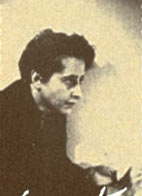 Hannah Arendt
Hannah ArendtThursday, March 4, 2010 | Jewish Ideas Daily » Daily Features
Nearly 35 years after her death, Hannah Arendt (1906–1975) continues to spark discussion and reflection. For Israeli readers in particular, the recent appearance in Hebrew translation of her magnum opus, The Origins of Totalitarianism, as well as of Elisabeth Young-Bruehl's massive biography (1982, rev. 2004), brings home her continuing ability to frustrate and provoke. A consummate German-Jewish intellectual, Arendt received a thorough philosophical training, studying (and more than studying) with Martin Heidegger and writing a dissertation on Augustine's theory of love. The rise of Nazism drove her from metaphysics to politics; she became active, first in Germany and later after fleeing to...
 Are We One?
Are We One?Wednesday, March 3, 2010 | Jewish Ideas Daily » Daily Features
The hate-fest known as "Israeli Apartheid Week," now taking place in cities around the globe, is bound to affect the morale of Diaspora Jews, if in different ways. Some may be induced to lower their pro-Israel profile, others to dissociate themselves from the Jewish state and its policies, still others to affirm their solidarity ever more resolutely. We have come a long way since the 1967 Six-Day War. Before that watershed event, Diaspora Jewish life was not noticeably animated by a vigorous commitment to Israel's cause. But the country's spectacular victory in war, in tandem with the energies released by the...
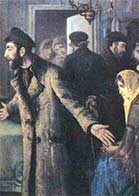 Agunot
AgunotWednesday, February 24, 2010 | Jewish Ideas Daily » Daily Features
Ta'anit Esther, the traditional fast day preceding Purim, will be observed tomorrow. In recent years it has been designated as an international day of study, reflection, and calls to action on behalf of agunot, literally "anchored" or "bound" women. In biblical and talmudic law, a marriage is dissolved upon certain proof of a spouse's death or upon the granting of a divorce (get) at the husband's discretion. Each of these halakhic requirements can leave a woman languishing for years, tortured either by her husband's uncertain fate or by his malicious will. Though technically the term agunah is reserved for the former condition, it...
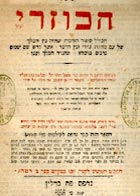 Yehuda Halevi
Yehuda HaleviMonday, February 22, 2010 | Jewish Ideas Daily » Daily Features
How golden was the Jewish "Golden Age" of Spain: roughly, the 10th–11th centuries C.E.? In the era's once-popular reputation for Muslim-Christian-Jewish tolerance and coexistence (convivencia), it is increasingly easy to see an overused and overstated fiction; more and more, scholarship reveals just how conflicted a time it was, and how conditional was the "tolerance" extended to minority communities. Still, for Jews as for others it truly was a period of amazing cultural creativity and accomplishment, all the more astonishing in light of convivencia's constraints. Under Muslim rule, the most innovative Jewish achievements lay in the realms of poetry and philosophy. Standing at the summit of both,...
 The Heart or the Head?
The Heart or the Head?Wednesday, February 10, 2010 | Jewish Ideas Daily » Daily Features
In recent decades, "brain death," the cessation of all neurological activity, has increasingly supplanted cardiac-respiratory failure as the most widely accepted medical criterion of death. This definitional shift has helped mitigate the often ruinous toll on families of caring for patients whose hearts can be artificially kept beating in the absence of even the simplest brain function. It has also saved lives, by facilitating the process of preserving and donating organs for transplantation. Fundamental to Judaism is the idea that human beings are created in the divine image. This affirmation of human dignity finds practical expression in the thoroughgoing prohibition on murder...
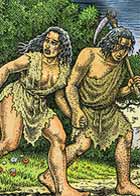 Talking Pictures
Talking PicturesFriday, February 5, 2010 | Jewish Ideas Daily » Daily Features
Ever since Art Spiegelman's landmark Maus (1986), comics and graphic novels have established themselves as a new form of visual-cum-verbal midrash. The best of them, re-imagining texts and the events of history, point beyond themselves. If Spiegelman paid tribute to his father, a survivor of the Holocaust, the hero of Joann Sfar's The Rabbi's Cat is witness to the vanished Jewish culture of Algiers. Other cartoonists have tackled the text of the Bible, as eloquent as it is famously laconic. R. Crumb (of Fritz the Cat) has recently published his take on the Book of Genesis, rendered in his trademark mix of burlesque, Blake, and...
 Tablets
TabletsWednesday, February 3, 2010 | Jewish Ideas Daily » Daily Features
A few days ago, Apple released yet another new device aimed at integrating words written, spoken, and seen, and freeing them from the limitations of time and space. It joins an array of other products making texts and audio-video materials available as never before. Is anything being lost here? The Talmud declares: "Written words should not be spoken, and spoken words should not be written." What the rabbis specifically sought to impress on Jewish minds was the difference between the Written Torah, fixed, immutable, divine, and the constantly accreting commentaries known as the Oral Torah, spontaneous, dynamic, human yet also somehow partaking of...
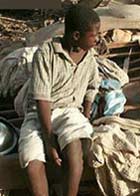 Tikkun Olam
Tikkun OlamMonday, February 1, 2010 | Jewish Ideas Daily » Daily Features
If Israel's army was especially conspicuous during the early rescue and recovery efforts in Haiti, other Jewish agencies have been working on or behind the scenes as well. Among them is a coalition coordinated by the Joint Distribution Committee, the Jewish relief agency in continuous operation since World War I. According to the coalition's website, its Haiti-related work "demonstrates the age-old Jewish tradition of tikkun olam, or helping to repair the world." The phrase tikkun olam is indeed age-old, but its traditional meaning is very far from present-day connotations. The term originally appears in the second-century Mishnah to denote a specific set of...
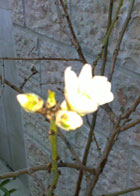 Tu b’Shevat: What Sorts of Trees are We?
Tu b’Shevat: What Sorts of Trees are We?Friday, January 29, 2010 | Jewish Ideas Daily » Daily Features
Deuteronomy 20, discussing the laws of war, and in particular siege, forbids the cutting down of fruit trees, adding, in an ambiguous and tantalizing phrase, "ki ha-adam etz ha-sadeh." The words can be translated as a simple if enigmatic statement ("for man is a tree of the field") or as a question (in the rendering of the JPS Torah,"are trees of the field human?"). The classical commentators were likewise divided. The Talmud, reading the phrase as a statement, is moved to offer a prototype of a human "tree of the field": a virtuous sage, a worthy teacher and role model. Rashi, the...
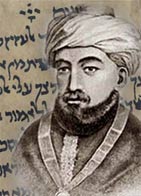 Mediterranean Maimonides
Mediterranean MaimonidesTuesday, January 26, 2010 | Jewish Ideas Daily » Daily Features
Civilizations come and go. Their greatest surviving creations remain. Such is the case with the work of Maimonides (1135–1204), a towering thinker, known to Jewish tradition as "the Great Eagle," who continues to defy easy characterization. Two new biographies depart from past treatments to situate the thought of this master philosopher within the Arabic civilization of his time, and more generally in the prism of the Mediterranean world. To the late scholar Shlomo Dov Goitein, the Mediterranean was a gracious, cross-cultural society that reached its apotheosis in the person of Maimonides' son Abraham, a Jewish devotee of Sufism. To Maimonides' more recent biographers, it...
Editors' Picks
To Save a Life Elli Fischer, Adderabbi. In Jewish terms, is a man a hero for sacrificing his life in an attempt to save another?
Rabbi in the New World Lawrence Grossman, Forward. Contradictions, or at least inconsistencies, marked Joseph B. Soloveitchik's involvement in virtually every major issue that confronted modern Orthodoxy.
The Standing Devotion Fred MacDowell, On the Main Line. In 1706, Isaac Abendana published Discourses of the Ecclesiastical and Civil Polity of the Jews; it includes a précis, reproduced here, of the 18 sections of the Amidah, the central daily prayer.
No Human Rights for Jews Roz Rothstein, Roberta Seid, Jerusalem Post. Polls continue to show that most Palestinian Arabs reject the right of Israeli Jews to live in peace, freedom, and dignity; in this they are encouraged by many Western policy—and opinion—makers.
The Prophet Dara Horn, Jewish Review of Books. In two magnificent novellas, published before World War II and now available in a new English edition, the Yiddish poet Jacob Glatstein devastatingly foresaw the shape of things to come.
Flogging and the Rabbis Michael L. Satlow, Michael L. Satlow. A once-common practice, recently recommended for revival by an American criminologist, is discussed at length in the Talmud. Barbarous, or something more complex and perhaps even effective?
Right of Reply Joseph J. Siev, Huffington Post. On the heated response of a prominent Reconstructionist rabbi to my article concerning the present condition of his movement.
Missing Ingredient Gil Student, Torah Musings. If Jewish theology is whatever Jews happen to be thinking about religion, then it is idiosyncratic and meaningless; so how should it be defined?
Unorthodox Orthodox Matchmaker Cindy E. Rodriguez, Time. A rabbi has devised a way to help homosexual men fulfill their dream of becoming husbands and fathers while remaining in good standing with Jewish religious law.
Groupthink and the Sanhedrin Patricia Cohen, New York Times. Did the decision-making practices of the ancient Jewish legislative body anticipate modern wisdom on averting conformism and encouraging dissent?

